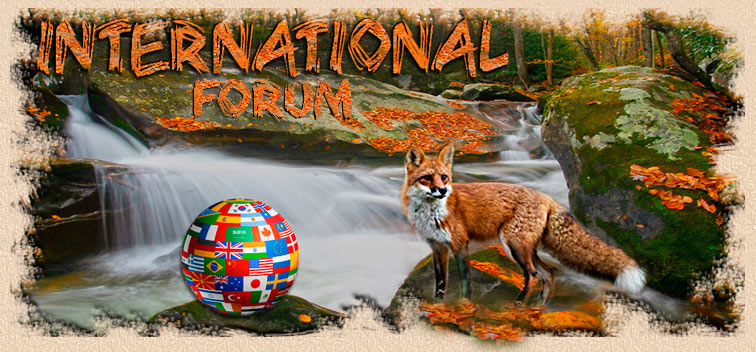What is the process in Germany to become a licensed trapper there? Is there public land to trap on or can you only trap on private land with permission from the property owner? Are there professional trappers there? A close Dutch friend said professional trappers are hired to trap muskrats on the dikes in the Netherlands. Is it similar in Germany with professional trapping?
For trapping animals considered game animals you first have to become a licensed hunter plus go to a trapping course and than you have to find a hunting ground with an owner or leaseholder that allows you to trap on his ground.
To become a leaseholder yourself you have to be a licensed hunter for at least 3 years.
To become a licensed hunter you have to go to a hunting school first.
There a essentially two types of courses at the hunting schools. You can either go for a about 3 week fulltime course or a course that stretches over serveral month with evening- and weekend elements so you can do it parallel to your job.
Topics are hunting-, weapons-, nature protection, hygiene- etc. regulations, knowledge about animals, plants, biotopes etc. knowledge about hunting, huter's jargon, practice in weapons handling and shooting, and so on.
Most of todays basic courses include the trapping course so you do not have to do this one seperately.
After hunting school you are allowed to a state-approved hunting exam which includes a shooting exam for both, rifle and shotgun.
When you have manged this test, you can get your hunting license which doubles as a weapons license.
The hunting grounds are organized in the so called Reviersystem (section system).
The ower of parcel technically has the hunting rights, but you need to have a rounded area of at least 75 ha to 150 ha (depending on the state) to constitute a section / a hunting ground.
If you are the owner of enough rounded land, you can get the status of a so called Eigenjagd, meaning yow own a legal hunting ground for yourself and can hunt on it, if you are a licensed hunter, or lease it to an hunter.
All other land owners are by law members of a Jagdgenossenschaft (or servel ones, if you own ground in different places, als I do).
The Jagdgenossenschaft ist a collective that sums up the hunting rigths for usually a couble of 100 ha. The members choose a management board and the joint hunting right can either be leased to somebody or manged by the collective itself. In most cases it is leased to a hunter or team of hunters.
The lease holder than can hunt on this ground and can give hunting permits to other hunters.
Larger state owened blocks are usually dived in hunting areas about the same size and leased to hunters, too.
There is no hunting on lage puplic land like in North America. It is all organized in small leases. And the owner oder lease holder decides who is allowed to hunt on his ground.
Muskrat are a separate topic. They are not native in Europe. They have been introduced in Europe in the twentieth century for there pelts.
In most parts they are now considered as pests as they do a lot of damage to levees and pond dams.
In Germany they are too not conisdered game but a pest.
If you want to trap them, you do not need a general hunting license. You go to your District Office and get a muskrat license.
You usually get an information flyer on what traps your are allowed to use, the district office registers you and off you go.
The regulations for musrat traps are much lower than those for game animals.
You can use sets without boxing them in. But you are not allowed to use creel like traps, only certain instant kill traps, and if you use bait, the bait has to be covered with some screen from obove to avoid catching waterfowel.
Some District Offices pay a prize for each muskrat caught. But only in very view cases this prize is high enough to make people hunting them as part of their living.
I never met a professional musrat trapper in Germany myself. I only have read that there are some in northern Germany who are paied to protect levees.
Trapping fur animals for their fur in order to make a living from selling the fur does no more exist in Germany.
The fur prices are very low and animals with more expensive fur like European Lynx are strictely protected.
Most predator hunting is done to protect small game like hare and pheasant.
And most hunters are hobbyists.
There are rich people who hire game wardens for their hunting grounds. And there are some professional hunters working for national parks etc.
Here a short video series an the hunters working for the National Park Berchtesgaden around Lake Königssee.
https://www.youtube.com/watch?v=lhUdH_iIijcMain part of their job is to prevent the protective forests on the mountain sides form beeing eaten by too many red deer, roe deer and chamois.




![[Linked Image]](https://trapperman.com/forum/attachments/usergals/2024/08/full-58855-225803-kieferle_marderkobel_01.jpg)
![[Linked Image]](https://trapperman.com/forum/attachments/usergals/2024/08/full-58855-225804-kieferle_marderkobel_02.jpg)
![[Linked Image]](https://trapperman.com/forum/attachments/usergals/2024/08/full-58855-225805-thale_marderkobel_01.jpg)
![[Linked Image]](https://trapperman.com/forum/attachments/usergals/2024/08/full-58855-225806-thale_marderkobel_02.jpg)
![[Linked Image]](https://trapperman.com/forum/attachments/usergals/2024/08/full-58855-225812-berliner_eisen1.jpg)
![[Linked Image]](https://trapperman.com/forum/attachments/usergals/2024/08/full-58855-225813-berliner_eisen2.jpg)
![[Linked Image]](https://trapperman.com/forum/attachments/usergals/2024/08/full-58855-225809-weisser01.jpeg)
![[Linked Image]](https://trapperman.com/forum/attachments/usergals/2024/08/full-58855-225810-weisser02.jpeg)
![[Linked Image]](https://trapperman.com/forum/attachments/usergals/2024/08/full-58855-225811-weisser03.jpeg)